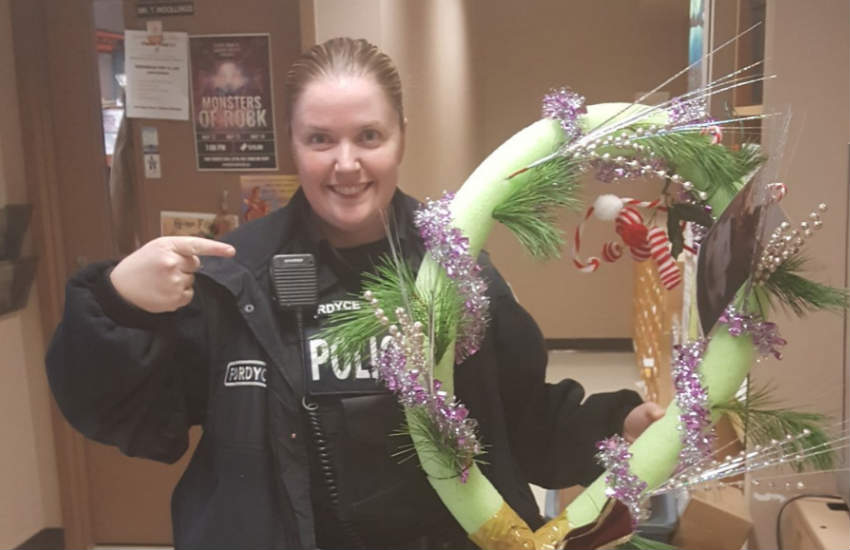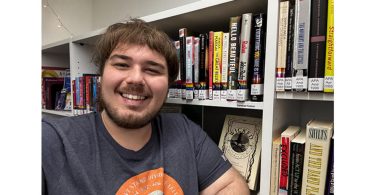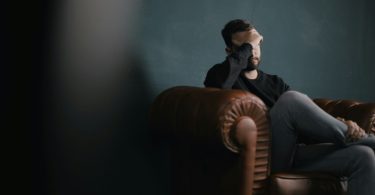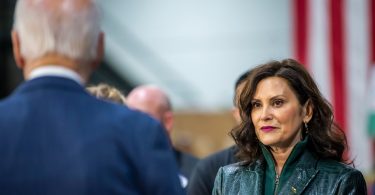Openly gay Const. Anthea Fordyce trained to become a police officer in the UK and later moved to Canada. | Photo: @anfordyce1/Twitter
Lesbian police officer Anthea Fordyce was ‘disappointed’ about not being able to wear her uniform at Pride London, Ontario on 29 July.
Pride London festivities culminated in the annual parade along Queens Avenue. On the day, marchers took to the streets of the city in southwestern Ontario to celebrate their true self.
However, in a statement earlier this year, Pride London made clear police officers could only march sans uniforms. They also weren’t allowed to parade on police vehicles.
A no uniform policy to make the parade more inclusive
Pride London decided to do so ‘to make the parade more inclusive and remove additional barriers for participants’.
‘After several conversations and a community input session earlier this year, our members expressed concerns about the large presence of police in uniform participation in the annual London Pride Parade,’ explained Pride London Festival president Andrew Rosser.
Pride London Festival Release: pic.twitter.com/bBLq7skw4M
— Pride London Fest (@prideldnfest) April 13, 2018
The ban sparked a debate. London Police Chief John Pare said his officers would take part anyway, but didn’t conceal his disappointment.
‘I can admit that I am a bit disappointed that we won’t be allowed to wear our uniforms, but I also look at what Pride stands for and it’s about inclusivity and including everyone,’ he told CBC News last April.
Police are ‘not where we were 50 years ago’
Constable Fordyce, who is from the Republic of Ireland, expressed her frustration at the decision ahead of the parade. Fordyce met her wife, also a police officer, during police training in England and said they have attended many parades.
‘We’ve been to Pride parades all over the world and police being part of that was such an important piece,’ Fordyce told CBC in a radio interview on 27 July.
She also said: ‘People recognizing that we are not where we were 50 years ago; we have a police service that supports us, that encourages inclusion and equality.’
To Fordyce, the ‘large number’ of officers – which was Pride London’s concern – should be something to celebrate. Furthermore, she pointed out that officers’ eagerness to march signals that police believe in supporting the LGBTI community.
‘I just hope that we can move past this bump in the road, and really work on those relationships,’ she added.
GSN has reached out to Pride London for further comments.
Read more about Prides:
University chaplain fired after holding service to atone Pride Glasgow ‘offense’
This Cardiff Pride’s future is in jeopardy – and it all comes down to parking spots
LGBTI women’s magazine slams anti-trans lesbians: ‘You do not speak for us’







